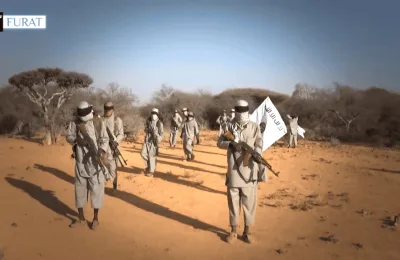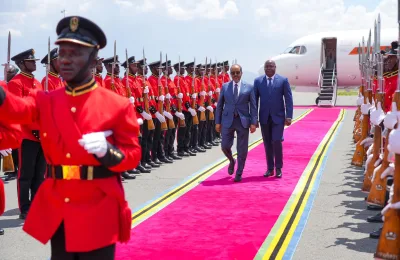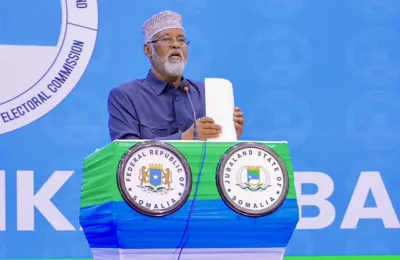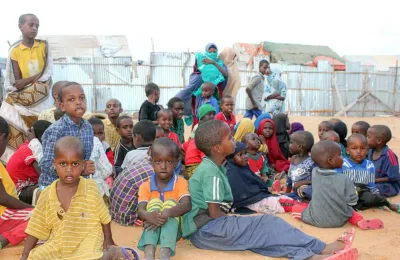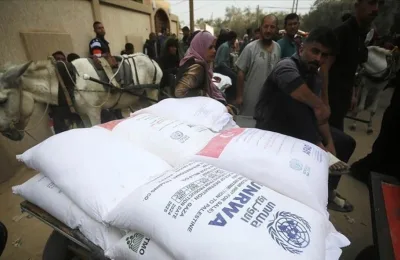Today, the European Union and Oxfam launch a new 3 year program to enhance and sustain…

Today, the European Union and Oxfam launch a new 3 year program to enhance and sustain Somali artisanal fisheries production, including processing and trade, and the related coastal management. The project launched today is part of a 5 million EUR programme that will be implemented in Somaliland and Puntland and will be expanded to other Somali regions if successful.
Somali waters are home to some of the richest fishing grounds in Africa, with vast potential for fisheries and coastal area development. However the sector remains under developed due to lack of skills among fishermen to go deep into sea water, lack of tools (boats and fishing gears) and lack of regulatory frameworks. The specific component for Somaliland, launched today, will be implemented by Oxfam and the local agency Havoyoco in partnership with the Somaliland Ministry of Fisheries and Marine Resources. It will initiate capacity building for the Ministry of Fisheries and Marine Resources, improve fisheries technology, develop a licensing system and quality control standards, establish market information sharing network, provide information on the health benefits of fish products and conduct environmental assessments of the coastal zones.
“This project will contribute to the development of the fisheries sector and will support the technical capacity of the ministry and the entire fishing industry, said the Somaliland Minister of Fisheries and Marine Resources Ali Jama. We will work with the EU, Oxfam and partners for the successful implementation of the project”.
“There is a huge and untapped fishing potential that could bring important economic benefits to the coast, explained the EU Special Envoy, Michele Cervone d’Urso. We are very happy to support this timely initiative that will feed families, diversify livelihoods in coastal communities, create new job opportunities, stimulate fish production and export, and create an essential source of income for Somalis.”
“Improved fishing techniques, improved processing, and marketing of fish products are critical to the livelihoods of many people on the coast,” said Enzo Vecchio, Country Director for Oxfam. “Over the long term, this program will serve to build the resilience of local communities.”
“This project will improve lives for fishermen and their families as well as that of the wider community through easier access to fish and sea products. They will also enable the government to strike a balance between enabling and regulating the fisheries sector, to ensure sustainable fishing for future generations,” said Omer Abdillahi, Executive Director of Havoyoco.
(END)
Editors Notes
· Somaliland has an 850 km long coastline that borders the the Gulf of Aden and the Indian Ocean.
· The public and private sector institutional capacity building and strengthening project is a three year programme funded by the European Union and will run from 2014 to 2016.
How the program will be implemented:
The program will strengthen the capacity of the Ministry of Fisheries and Marine Resources and the private sector to maximise and manage marine resources. This will be achieved by:
Strengthening the capacity of Ministry of Fisheries and Marine Resources to effectively manage marine resources and the coastal environment by:
· Building the capability of local institutions on fisheries technology and marine resource management through technical knowledge transfer
· Supporting the development of a licensing system
· Strengthening the capacity of the Ministry of Fisheries in Somaliland to establish quality control standards
· Encouraging fishermen, traders and other stakeholders to use the improved quality control standards and licensing system
· Establishing an accessible market information sharing network
· Widely sharing information on the health benefits of fish and by products
Formulating and implementing policy and regulations for protection and sustainable management of marine resources and the coastal environment by:
· Working with private sector institutions and the Government to conduct environmental assessments of the coastal zones
· Engaging in regional level advocacy for the enforcement of the Basel Convention on the elimination and disposal of hazardous waste.
Source: Relief Web


